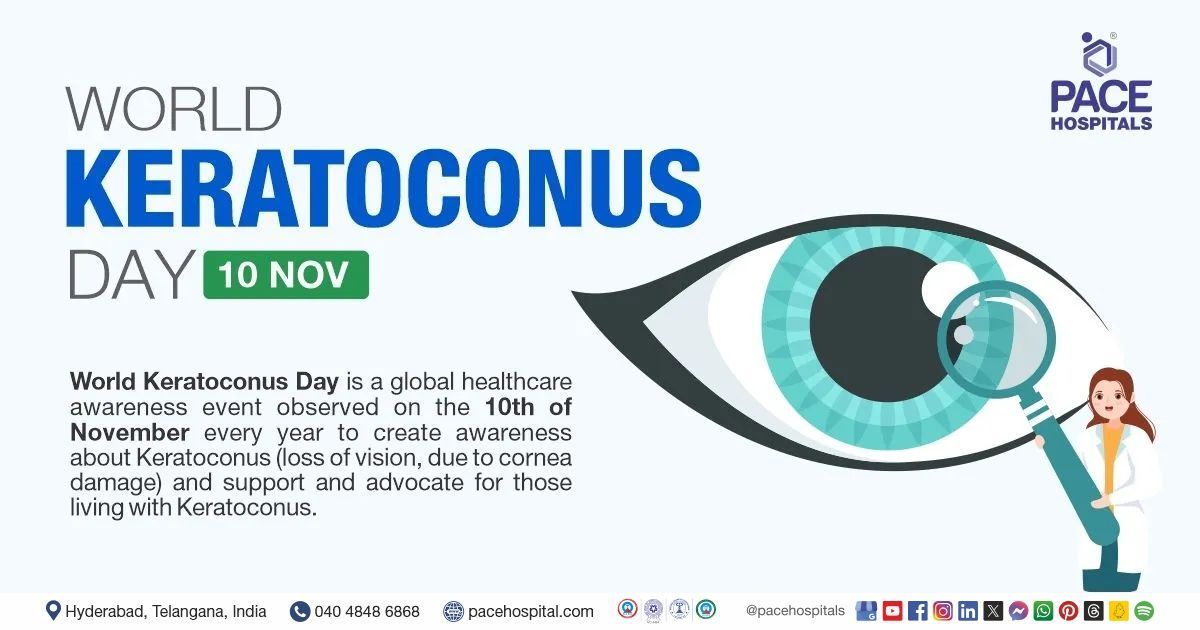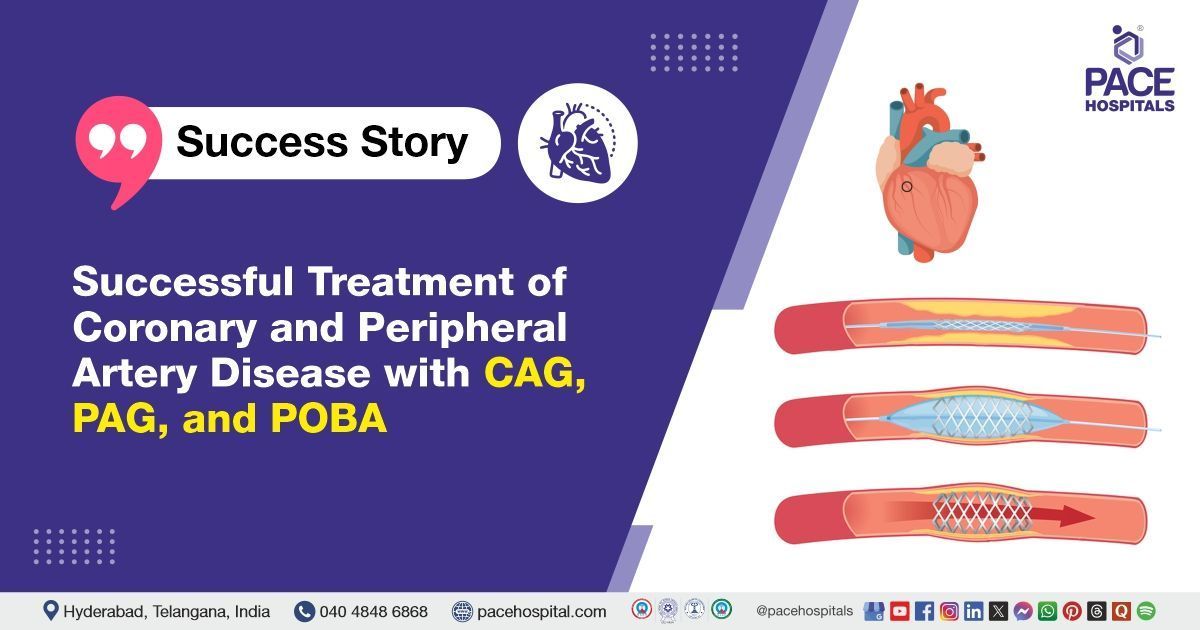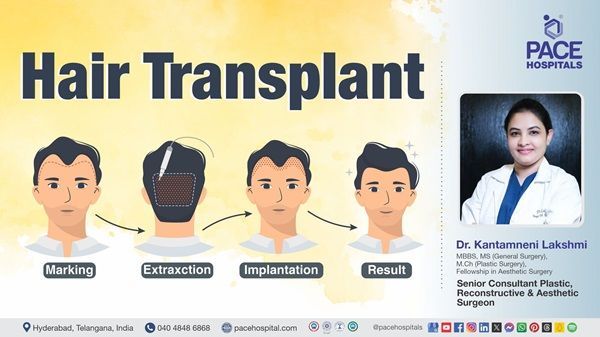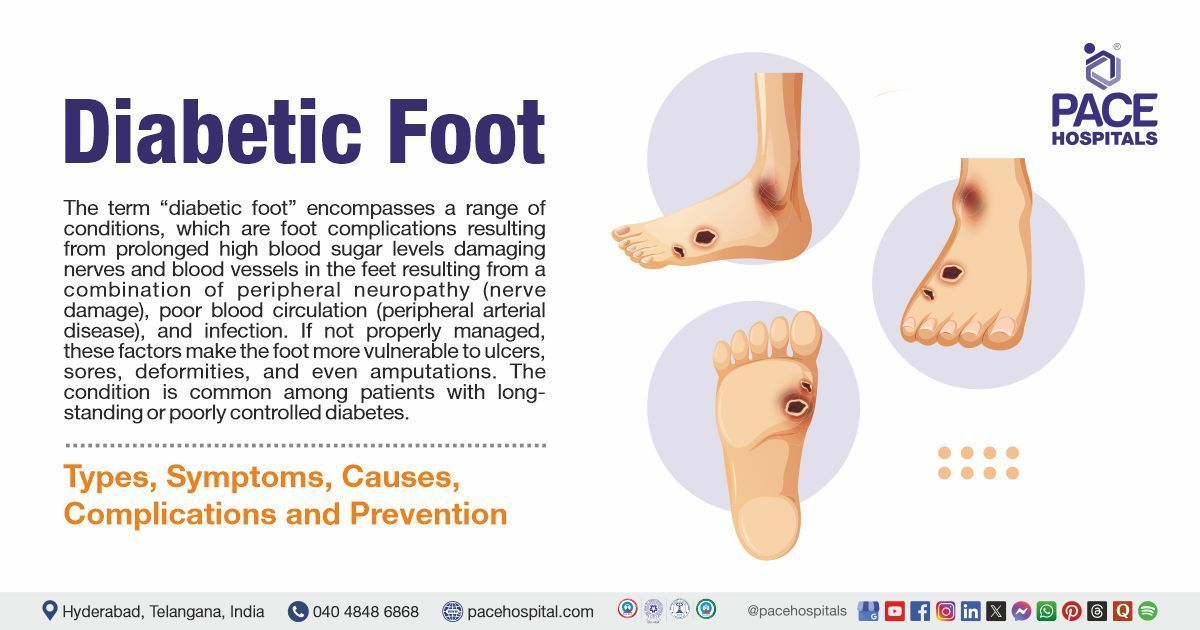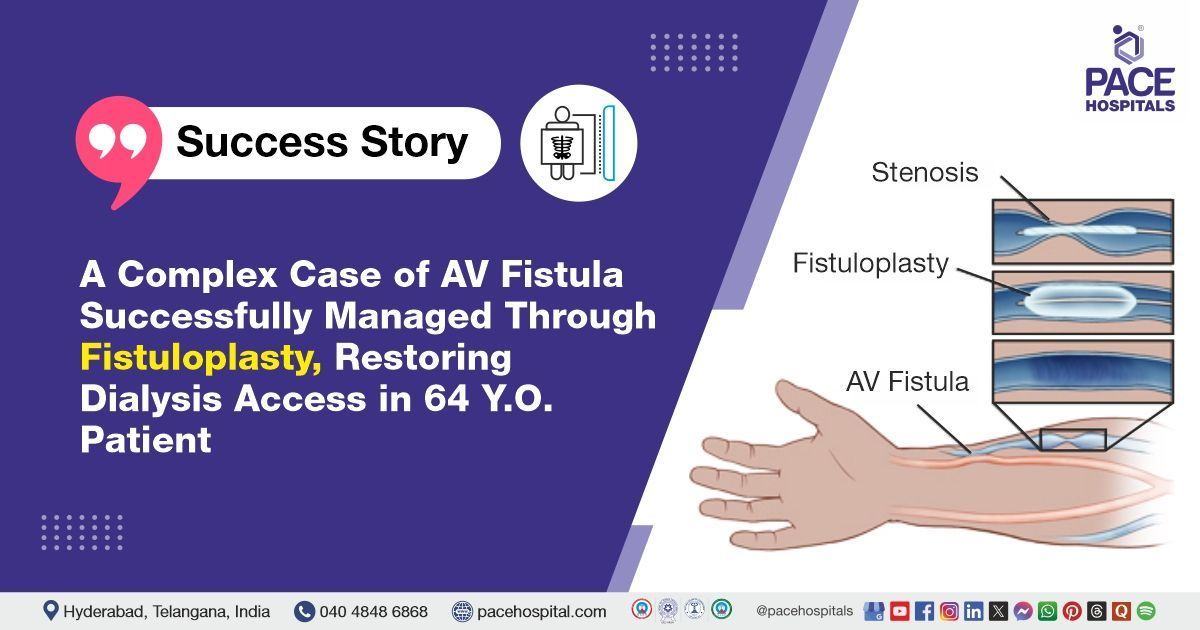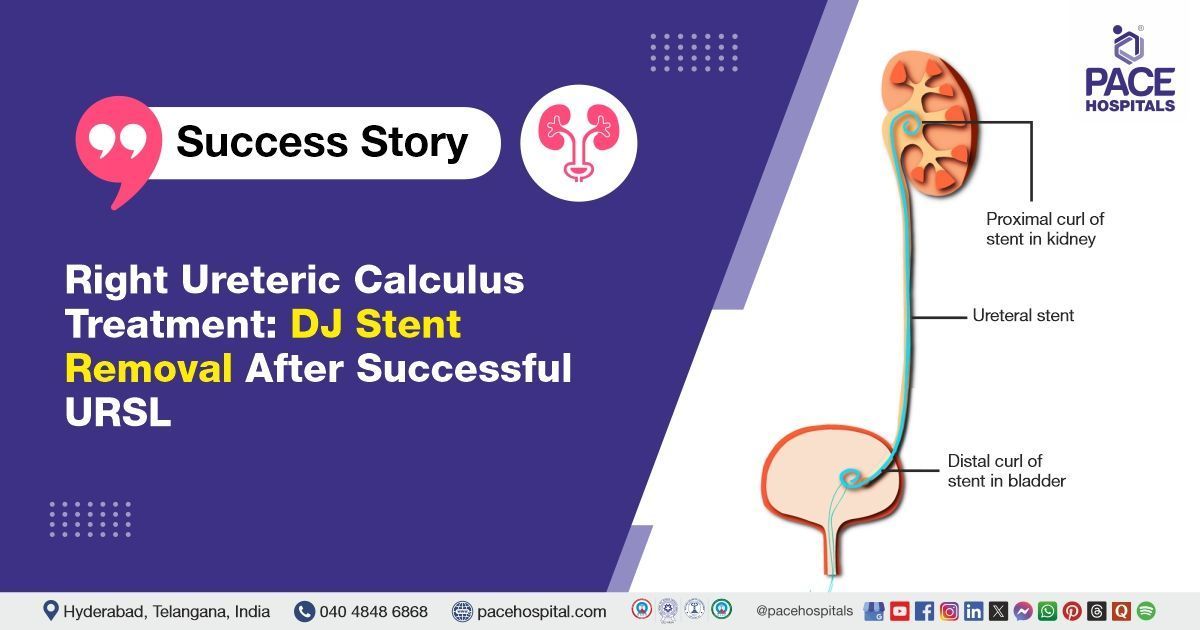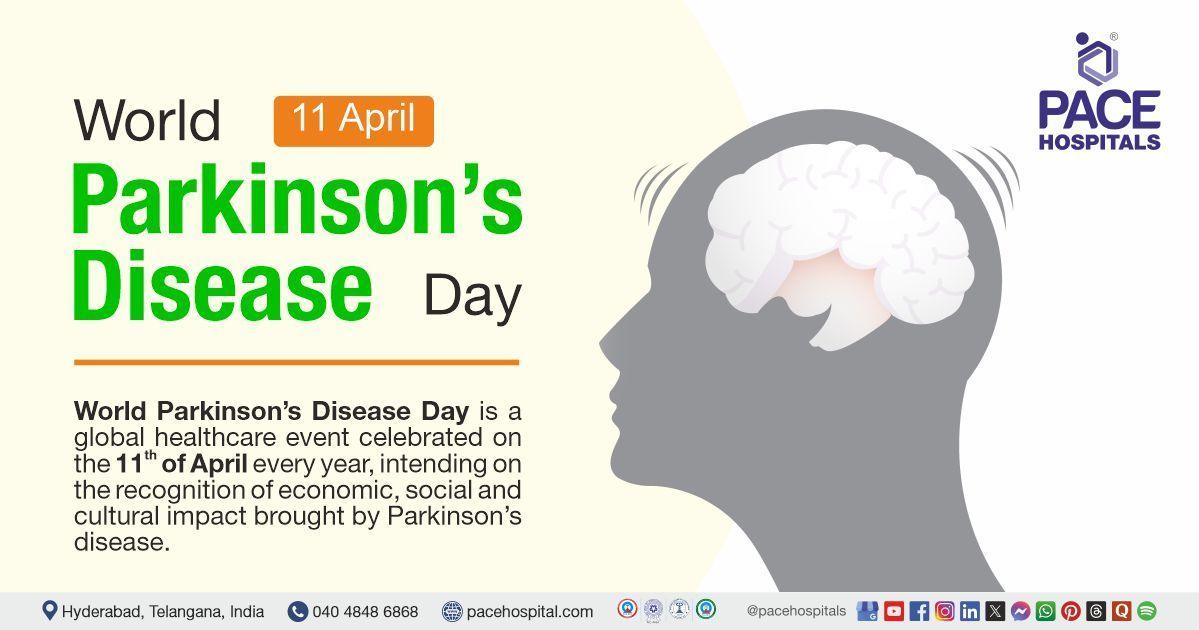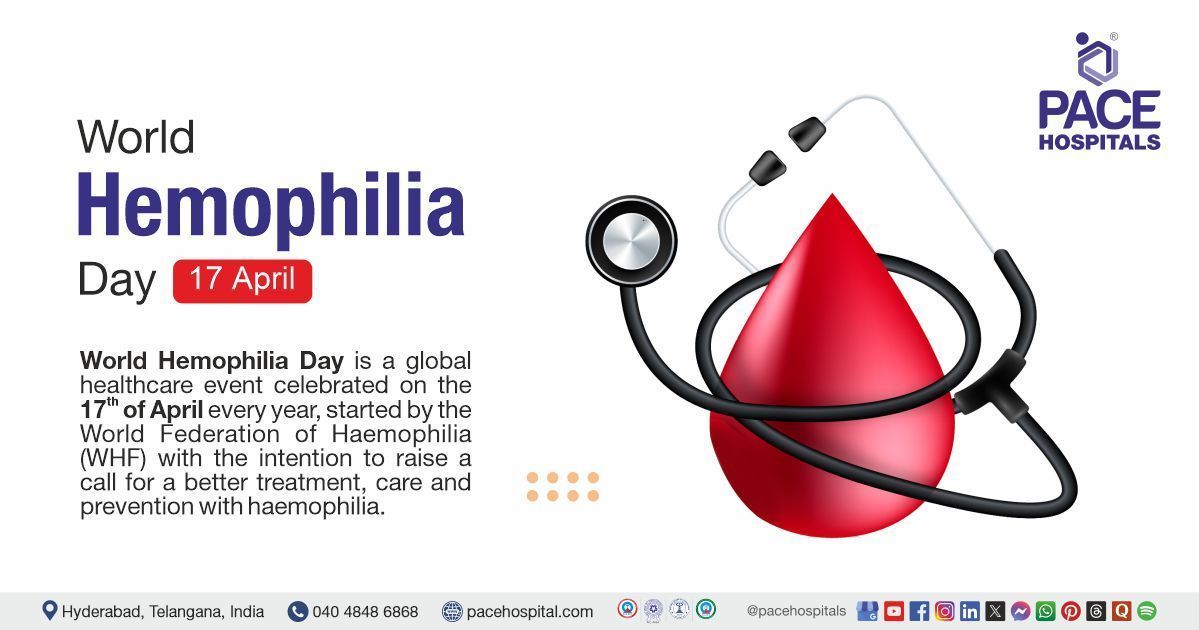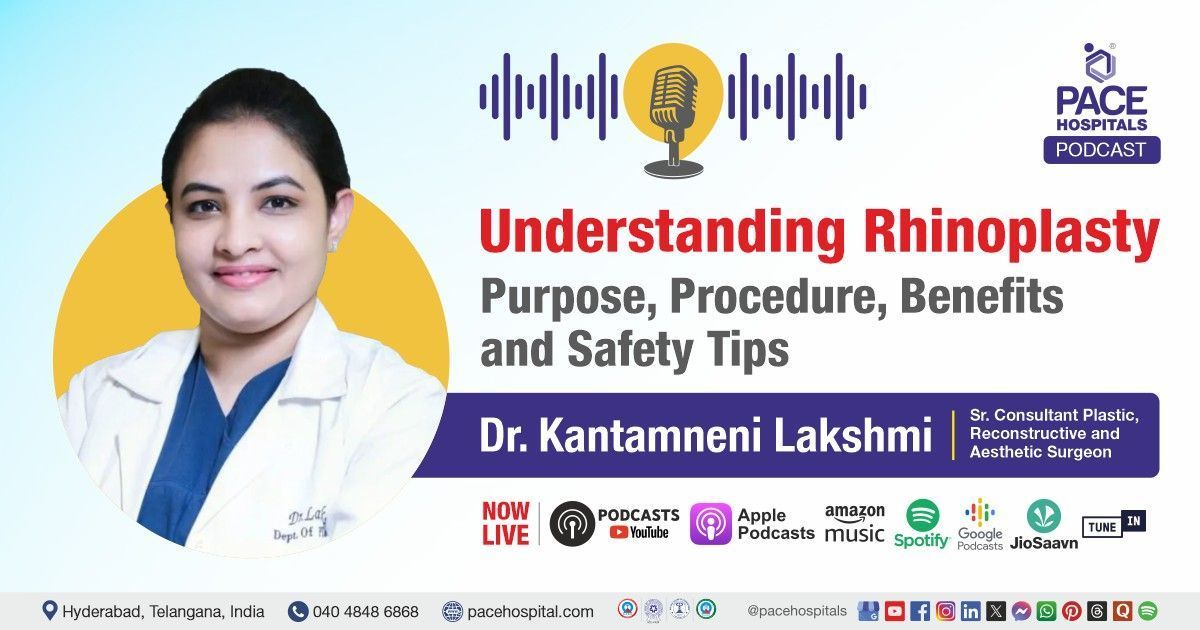World Keratoconus Day 10 November 2024 - Importance & History
World Keratoconus Day, observed on November 10th annually, aims to raise awareness about keratoconus, a condition where the cornea becomes thin and cone-shaped, distorting vision. The day highlights the challenges faced by those living with the condition, promotes early detection, and supports advancements in treatments like corneal crosslinking and specialized contact lenses. By educating the public, World Keratoconus Day encourages greater understanding and provides hope for better care and outcomes for individuals with keratoconus.
On this day, several organizations, companies, and healthcare professionals come together and conduct screening programs, educational seminars and webinars to create awareness about its impact on people suffering from Keratoconus.
Importance of World Keratoconus Day
World Keratoconus Day helps raise awareness about a condition that is often underrecognized or misunderstood. Many people with keratoconus are unaware of the condition until it significantly affects their vision. By drawing attention to the disorder, the day encourages earlier detection, which is crucial for managing the condition effectively and preventing further vision loss.
Early diagnosis is key in slowing the progression of keratoconus, and greater awareness among the public and healthcare professionals can lead to more timely interventions. As a result, individuals can receive the appropriate treatments, such as corneal crosslinking or specialized contact lenses, which can greatly improve their quality of life.
The day also serves to foster a sense of community for those living with keratoconus, who may otherwise feel isolated due to the rarity of the condition. By sharing stories and resources, it offers emotional support and connects individuals facing similar challenges. Additionally, World Keratoconus Day highlights ongoing research and treatment advancements, providing hope for those affected and encouraging further innovation in care.
Ultimately, the observance of World Keratoconus Day plays a crucial role in both educating the public and advancing the understanding of keratoconus, while advocating for continued research and better treatments for those impacted by the condition.
As of 2024, keratoconus remains a significant cause of visual impairment, affecting individuals worldwide. The global prevalence is estimated to range from 1 in 500 to 1 in 2000 people, although it can be higher in certain populations. Studies suggest that about 1 in 1,000 individuals globally may be affected by keratoconus, with variations depending on geographic and genetic factors.
In India, the prevalence is notably higher than the global average. Estimates suggest that approximately 1 in 500 to 1 in 1,000 individuals are affected by the condition, with some regional studies pointing to even higher figures, particularly in urban areas where better awareness and more frequent eye screenings occur. Keratoconus is more common among South Asian populations, which is thought to be due to a combination of genetic and environmental factors, such as eye rubbing, which is a known risk factor for the condition's progression.
Both globally and in India, early detection remains a challenge due to the gradual onset of symptoms. Keratoconus typically starts in adolescence or early adulthood, often going unnoticed until the vision becomes significantly distorted. Increased awareness and improved diagnostic tools, such as corneal topography and tomography, are helping to diagnose keratoconus at earlier stages, offering a better chance of managing the condition with treatments like corneal crosslinking, specialty contact lenses, and, in advanced cases, corneal transplants.
Although environmental variables probably influence the prognosis of the disease, Keratoconus (KC) is believed to be inherited. Nearly 6% to 8% of reported cases have a positive family history or show symptoms of familial transmission.
History of World Keratoconus Day
Burchard Mauchart (a German oculist) first described a case of keratoconus disease in 1748, referring to it as 'staphyloma diaphanum' in his thesis. World KC Day, also known as National Keratoconus Day, was founded in 2016 by the National Keratoconus Foundation (NKCF), an educational program offered by the Gavin Herbert Eye Institute at UC Irvine.
The day aims to educate the public, healthcare professionals, and policymakers about the condition, its symptoms, and treatment options. It also provides a platform for patients and advocacy groups to share experiences and support each other. Since its inception, World Keratoconus Day has grown into a global movement, promoting early detection and improving the quality of life for those living with keratoconus.

Preventive measures for Keratoconus (conical cornea)
While keratoconus cannot be fully prevented due to its largely genetic nature, certain preventive measures can help manage the condition and potentially reduce its progression. Here are some key steps that may be beneficial:
- Avoiding eye rubbing
- Protecting eyes from UV radiation
- Wearing proper fitted contact lenses
- Managing allergies
- Having Regular eye check-ups
Request an appointment
Fill in the appointment form or call us instantly to book a confirmed appointment with our super specialist at 04048486868
Appointment request - health articles
Thank you for contacting us. We will get back to you as soon as possible. Kindly save these contact details in your contacts to receive calls and messages:-
Appointment Desk: 04048486868
Whatsapp: 8977889778
Regards,
Pace Hospitals
Hitech City and Madinaguda
Hyderabad, Telangana, India.
Oops, there was an error sending your message. Please try again later. We will get back to you as soon as possible. Kindly save these contact details in your contacts to receive calls and messages:-
Appointment Desk: 04048486868
Whatsapp: 8977889778
Regards,
Pace Hospitals
Hitech City and Madinaguda
Hyderabad, Telangana, India.
Our Locations – Find the Best Hospital Near You
Metro Pillar Number C1772, Beside Avasa Hotel, Hitech City Road, Near HITEC City Metro Station, Hyderabad, Telangana, India.
Mythri Nagar, Beside South India Shopping Mall, Hafeezpet, Madeenaguda, Hyderabad, Telangana, India.
040 4848 6868
Payment in advance for treatment at PACE Hospitals, Hyderabad, Telangana, India (Pay in INR ₹)
For Bank Transfer:-
- Bank Name: HDFC
Company Name: Pace Hospitals
A/c No.50200028705218
IFSC Code: HDFC0000545 - Bank Name: STATE BANK OF INDIA
Company Name: Pace Hospitals
A/c No.62206858997
IFSC Code: SBIN0020299
Scan QR Code by Any Payment App (GPay, Paytm, Phonepe, BHIM, Bank Apps, Amazon, Airtel, Truecaller, Idea, Whatsapp etc).

CONTACT US
Call: +914048486868
WhatsApp: +918977889778
Email: info@pacehospitals.in
FOLLOW US
SUBSCRIBE
Subscribe to our newsletter and stay updated with the latest health information.
Subscribe to PACE Hospitals' Public Newsletter
Thank you for subscribing to PACE Hospitals' Newsletter. Stay updated with the latest health information.
Oops, there was an error. Please try again submitting your details.
ABOUT US
QUICK LINKS
Disclaimer
General information on healthcare issues is made available by PACE Hospitals through this website (www.pacehospital.com), as well as its other websites and branded social media pages. The text, videos, illustrations, photographs, quoted information, and other materials found on these websites (here by collectively referred to as "Content") are offered for informational purposes only and is neither exhaustive nor complete. Prior to forming a decision in regard to your health, consult your doctor or any another healthcare professional. PACE Hospitals does not have an obligation to update or modify the "Content" or to explain or resolve any inconsistencies therein.
The "Content" from the website of PACE Hospitals or from its branded social media pages might include any adult explicit "Content" which is deemed exclusively medical or health-related and not otherwise. Publishing material or making references to specific sources, such as to any particular therapies, goods, drugs, practises, doctors, nurses, other healthcare professionals, diagnoses or procedures is done purely for informational purposes and does not reflect any endorsement by PACE Hospitals – your trusted hospital near me.

